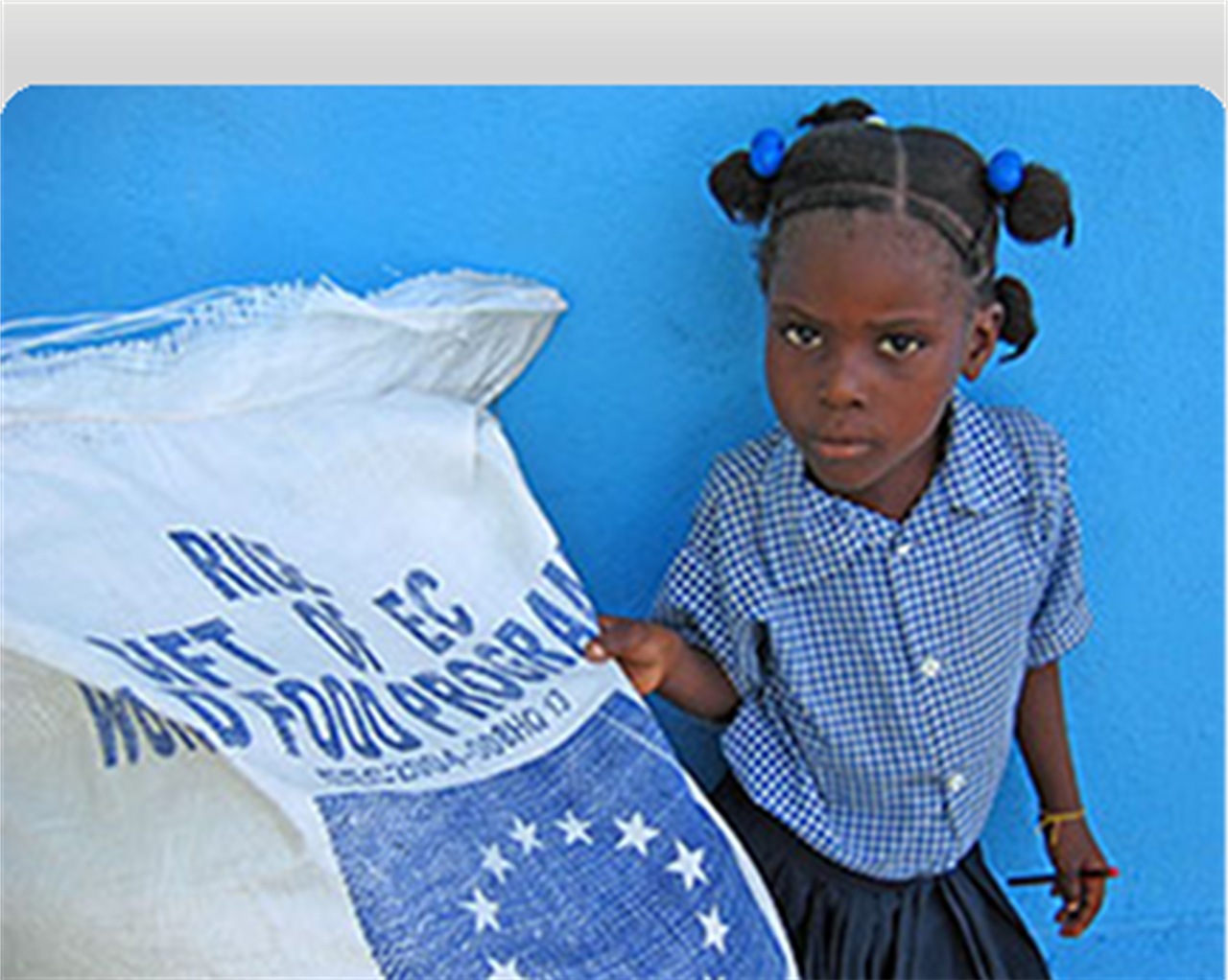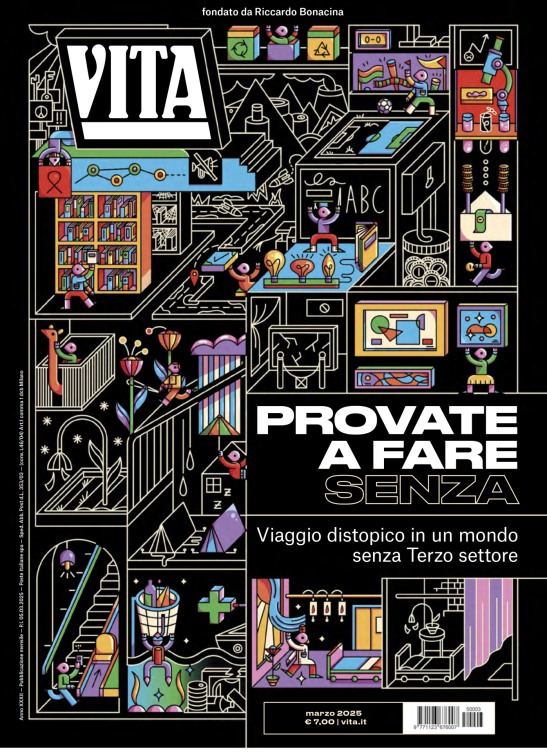Twelve steps to stop poverty
The EU commission has announced a proposal to revamp the EU’s aid efforts.
di Staff

On April 21, 2010, the EU commission presented to the press its twelve step plan to reach the poverty eradication goals it committed to in 2000 when it signed the UN Millennium Development Goals (MDGs).
Reaching 0.7 percent of gross national income (GNI) by 2015 is a lofty goal, and Brussels insiders know this.
“In 2009, the EU aid level has slightly decreased amounting to 49 billion Euros,” underlines the document. “This corresponds to 0.42 percent of EU GNI, making the EU still far from meeting the intermediate collective target of 0.56 percent GNI by 2010, before reaching 0.7 percent EU GNI by 2015.”
Despite these numbers, the EU is still the most important international donor.
2010 is said to be a turning point for the EU and its poverty eradicating plan.
A global summit on the MDGs is to be held at the UN headquarters, between September 20 and 22, 2010. The meeting will force international leaders to make concrete decisions on how to fill the donations gap.
In anticipation of the summit, the commission published an official proposal on the subject, which will be submitted to the other EU institutions. The proposal is an action plan outlining twelve necessary steps to reach the MDGs by 2015.
Unbalanced Globalization
Exacerbated by the global economic crises, the Barroso commission states that “globally there are more than 1.4 million people living under the poverty line,” and “51 percent come from Sub Saharan Africa.”
Despite renewed efforts in recent years, the international community is particularly behind on achieving three key goals: improving maternal health, reducing child mortality and improving access to education.
As the EU year against poverty and social exclusion runs its course, Brussels is trying to create awareness about the fact that social impoverishment cannot be fought solely from within the EU borders.
“The 2009 crisis has demonstrated that the world is interconnected,” underlines the Commission. Events happening in the Northern hemisphere have consequences in the Southern hemisphere and vice versa.
A problem lies in the fact that the “more globalization is unbalanced, the more secure and sustainable development is threatened.”
Main goal: efficiency
The EU’s efforts to date to achieve the MDGs are perceived as weak and the EU’s credibility is under attack.
The European Commissioner for Development, Andris Piebalgs, said “I want Europe to remain the main and most credible leader in the fight against poverty. We have to respect our promises of more and better aid to halve poverty by 2015. This plan shows how we can keep the lead in working with developing countries to get back on track towards the MDGs. The Goals are still achievable, provided there is financial effort and political will from EU Member States.”
Next September, at the summit in New York, the EU will have to “demonstrate how it will keep its promises, convince developing countries that EU nations are reliable and convince other donor countries to improve their actions.”
The challenges that face the EU are huge. Especially as the new Lisbon treaty is still creating some confusion in the EU external services.
One of the Commission’s top priorities is to adopt a trustworthy and transparent annual action plan. The aim is to outline a clear financial approach to meeting the 2015 goals.
As first step Piebalgs is pushing each member state to present an action plan for September 2010.
“The European Council should lead a process of peer review among member states. The Action Plan also calls for fair international burden-sharing with other international donors to raise their level of ambition”.
The second step calls for more efficiency in aid distribution. Currently, European institutions are not coordinated in their aid efforts. This lack of coordination, on average, leads to a yearly waste of between three and six billion Euros.
To prevent this kind of waste in the future, the Commission is pushing the EU and all of its member states to approve a proposal to “establish a mechanism that coordinates and shares information,” in order to harmonize “gradually the funding plans.”
The EU has promised 1.9 million euros in aid to Haiti. This aid project could act as a first test of the EU and its commitment to increased aid efficiency. A project like this one will require joint programming between the EU and its member states to insure an efficient “division of labor.”
The preplanning is necessary to avoid more confusion once aid reaches the field.
Health Care and Education
Outlined by the third step in the proposal, the Commission has asked the EU to concentrate its efforts on four crucial sectors: health, education, food security and gender equality.
Before 2015, “50 percent of all EU aid should be targeted towards the health care and education sector, channeled through budgetary support” to governments of developing countries. Also, part of this financing should finish directly in the banks of developing countries.
As for Brussels, Louis Michel, commissioner of development from 2004 to 2009, promised several developing countries that Brussels would help bear the economic burden of the financial crisis, allowing these governments to save their countries’ basic social services.
The plan did not stipulate for any commitment, on the part of these governments, to reach any of the Millennium Objectives, and the commission worries that the efforts by developed nations risk becoming useless.
To prevent this, the commission explains in the proposal’s fifth step, that the EU will need “strong national statistical systems. Not only as a way to monitor registered progress, but also as a way to stimulate responsibility on the part of the local public administration in offering basic services.”
To keep pace, the commission asks member states to increase support to developing nations with the understanding that recipient countries will adopt new fiscal reforms that allow for the implementation of new taxation systems.
Silence speaks volumes:
The plan also includes several reforms regarding the commercial sector, sources for aid funds, climate change, safety, good governance, aid organization and coordination between the EU and other international organizations, such as the African Union.
Missing in this document are any references to the Economic Patronage Accords (EPAs) or migration issues. Both are sensitive themes for the EU and African regions. Their omission can be interpreted as an attempt by the commission to keep debate focused on the core issues relating to reaching the MDGs.
For now it is unclear whether Brussels can meet its targets. However, in May and June it should become clearer. The EU Action plan and the accompanying thematic documents will be discussed in the Foreign Affairs Council starting in May. It should also be part of the European Council’s agenda in June. This is to ensure a strong and coordinated European voice for the UN Summit on MDGs in September 2010.
By Joshua Massarenti – Afronline.org & Vitaeurope.org
Nessuno ti regala niente, noi sì
Hai letto questo articolo liberamente, senza essere bloccato dopo le prime righe. Ti è piaciuto? L’hai trovato interessante e utile? Gli articoli online di VITA sono in larga parte accessibili gratuitamente. Ci teniamo sia così per sempre, perché l’informazione è un diritto di tutti. E possiamo farlo grazie al supporto di chi si abbona.
